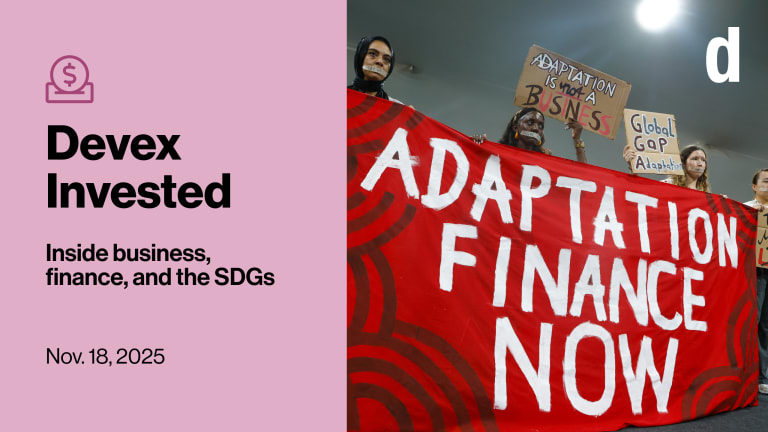
A combination of new and reformed financing mechanisms are likely to be needed in order to deliver climate finance at scale to developing countries, a number of experts suggest. A new climate finance deal could also signal a shift in the distribution of power and accountability between donor and recipient countries, they add.
In a report exploring the legitimacy of climate finance institutions, climate finance and environment experts analyze existing efforts to support climate change mitigation and adaption initiatives in developing countries. The report, published by the World Resources Institute, attempts to identify the elements needed to design a climate finance mechanism that will be perceived as legitimate by most stakeholders in the climate change fight.
Authors of the report say that they expect there would be a significant shift on who will control new and existing climate change mechanisms in favor of emerging countries. They add that this shift is “both long overdue and necessary to provide the basis for a successful global partnership on climate finance.”
A successful delivery of climate change finance will require the creation of new local and international financing mechanisms as well as reforms within existing institutions such as the Global Environment Fund and the Adaptation Fund.
New mechanisms should take into account lessons learned from years of development finance. These mechanisms should be grounded on principles of good governance and have strong accountability measures in place, the report notes.
Meantime, old financing mechanisms need to fully incorporate climate change-related concerns into their strategies, the authors argue, noting that existing institutions still support fossil fuel-led growth.
The fundamental governance structures and operation procedures of existing mechanisms should be reformed to give developing countries a greater voice in decision-making processes. This would improve the legitimacy of these institutions, authors of the report explain.
Ongoing climate change talks have often included heated debates over means to disburse the annual USD100 billion climate finance that developed countries promised to provide by 2020 as part of last year’s Copenhagen Accord. Developed countries are mostly inclined toward using multilateral banks and other existing institutions, while developing countries favor new financing mechanisms.
The WRI report notes that both parties need to strike a balance on this issue.
The authors say: “In order to generate a greater sense of trust and ownership, backers of existing agencies may have to accept a degree of duplication of existing capacity through the creation of new mechanisms—particularly where significant gaps in capacity are identified—and to accept strengthened lines of accountability of climate finance mechanisms to the UNFCCC Conference of the Parties (COP). On the other hand, those calling for the creation of new institutions may need to concede that it may waste precious resources to replicate the staff and services provided by existing agencies.”








